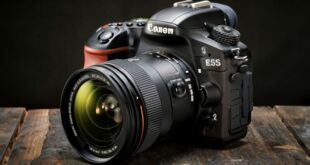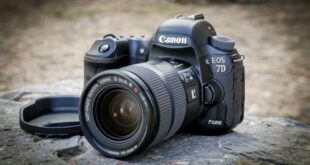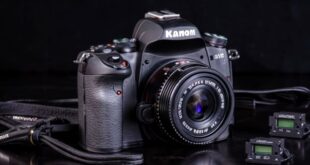An Insight into the World of Astrophotography
🚀 Ready to embark on a celestial journey? Today, we dive into the captivating field of astrophotography, where magnificent galaxies, sparkling stars, and ethereal nebulae await our gaze. But before we set out on this mesmerizing adventure, let us first understand the tools at our disposal: DSLR cameras and dedicated astrophotography cameras, commonly known as astro cameras. In this article, we will explore the similarities, differences, and practical implications of these two contrasting marvels.
The Introduction: DSLR Cameras and Astro Cameras Unveiled
📸 With their versatility and widespread availability, DSLR cameras have been the go-to choice for both amateur and professional photographers. However, when it comes to capturing astronomical wonders, astro cameras step into the spotlight. Let us delve into the core features and capabilities of these two contenders.
1. Sensor Size and Type
📷 DSLRs typically come equipped with larger sensors, enabling them to capture more light and produce stunning images with low noise levels. On the other hand, astro cameras boast specialized sensors designed for long exposure photography and are often equipped with a cooling system to minimize signal noise and maximize detail retention.
2. Resolution and Pixel Size
🌠 DSLRs, with their higher resolution and larger pixels, excel in capturing intricate details in wide-field landscapes and astrophotography. Astro cameras, however, prioritize pixel size over resolution, delivering enhanced sensitivity to capture faint celestial objects.
3. Dynamic Range and ISO Sensitivity
✨ DSLRs exhibit a wider dynamic range, enabling them to capture both bright stars and dimly lit foregrounds in landscape astrophotography. Astro cameras, with their low read noise and high dynamic range capabilities, are particularly adept at capturing the subtle variations in complex nebulae.
4. Cooling Systems and Long Exposure Capabilities
❄️ The cooling systems of astro cameras allow for extended exposure times, reducing noise and enabling the capture of deep-sky objects. DSLR cameras, in comparison, have limitations due to potential sensor overheating during long exposures.
5. Software Integration and Live View
💻 Astro cameras are designed to seamlessly integrate with astrophotography software, offering advanced control and precise adjustments. DSLRs, while offering live view and basic software compatibility, may lack the extensive features tailored explicitly for astrophotography.
6. Price and Accessibility
💸 DSLRs are more widely available and comparatively affordable, making them an attractive choice for beginners venturing into astrophotography. Astro cameras, being specialized tools, often come with a higher price tag but offer unparalleled performance for dedicated astrophotographers.
7. Portability and Ease of Use
🌌 DSLRs, known for their portability and user-friendly interfaces, offer a seamless transition for photographers venturing into astrophotography. Astro cameras, with their intricate settings and specialized knowledge requirements, may present a steeper learning curve.
The Advantages and Disadvantages: DSLR vs Astro Camera
1. DSLR Advantages
🔍 DSLRs provide a versatile platform for various photography genres, making them an excellent all-around choice even beyond astrophotography. Their higher resolution and larger pixel count allow for detailed wide-field images, while the wider dynamic range ensures stunning landscape astrophotography.
2. DSLR Disadvantages
🔍 DSLRs, lacking dedicated astrophotography features, may fall short when capturing faint and far-off celestial objects. Noise levels may increase during long exposures due to the absence of cooling systems, limiting their potential for deep-sky astrophotography.
3. Astro Camera Advantages
🔭 Astro cameras excel in capturing deep-sky objects with high sensitivity and minimal noise. Their dedicated sensors, cooling systems, and software integration provide astrophotographers with the tools necessary to unlock the secrets of the cosmos.
4. Astro Camera Disadvantages
🔭 Astro cameras, with their specialized nature, may be less versatile for other photography genres. Their higher price point and steep learning curve may deter beginners from venturing into astrophotography.
Table: DSLR vs Astro Camera Comparison
| Features | DSLR | Astro Camera |
|---|---|---|
| Sensor Size and Type | Larger sensors optimized for general photography | Specialized sensors with cooling systems for astrophotography |
| Resolution and Pixel Size | Higher resolution and larger pixel size | Lower resolution with larger pixel size for enhanced sensitivity |
| Dynamic Range and ISO Sensitivity | Wider dynamic range for landscape astrophotography | Low read noise with high dynamic range for intricate details |
| Cooling Systems and Long Exposure Capabilities | Lack of cooling systems for extended exposures | Integrated cooling systems for noise reduction during long exposures |
| Software Integration and Live View | Basic software compatibility but lacks dedicated astrophotography features | Seamless integration with advanced astrophotography software |
| Price and Accessibility | Widely available and relatively affordable | Specialized and higher price point |
| Portability and Ease of Use | Portable and user-friendly | Advanced settings with a steeper learning curve |
Frequently Asked Questions About DSLR vs Astro Camera
1. Can I use a DSLR camera for astrophotography?
🌟 Absolutely! DSLR cameras are a popular choice for astrophotography. With the right accessories and techniques, stunning celestial images are well within your reach.
2. Are astro cameras only for professional astrophotographers?
🌟 Not at all! While astro cameras are highly regarded in the astrophotography community, enthusiasts of all skill levels can benefit from their dedicated features and capabilities.
3. Are DSLRs more versatile than astro cameras?
🌟 Yes, DSLRs offer versatility beyond astrophotography, making them a great investment for photographers interested in various genres. Astro cameras, however, provide exceptional performance tailored specifically for capturing the wonders of the cosmos.
4. Can I achieve deep-sky astrophotography with a DSLR?
🌟 While DSLRs can capture some deep-sky objects, they may have limitations due to sensor noise and lack of cooling systems. Dedicated astro cameras are better equipped to handle the challenges of deep-sky astrophotography.
5. Do astro cameras require special software for post-processing?
🌟 Yes, astro cameras often require specialized software designed for astrophotography to fully optimize the capabilities of the captured images. These software tools offer advanced adjustments and features tailored to astrophotography.
6. Are astro cameras significantly more expensive than DSLRs?
🌟 Yes, astro cameras tend to have a higher price point due to their specialized features and superior performance. However, for dedicated astrophotographers, the investment is well worth it for capturing stunning deep-sky objects.
7. Which camera should I choose as a beginner in astrophotography?
🌟 As a beginner, a DSLR camera offers an excellent entry point into astrophotography. Its affordability, versatility, and familiar settings provide a seamless transition for photographers stepping into the captivating world of astrophotography.
8. Are there any significant differences in image quality between DSLRs and astro cameras?
🌟 While both DSLRs and astro cameras are capable of producing superb astrophotography images, the specialized features of astro cameras, such as lower noise levels and enhanced sensitivity, offer an edge in capturing fine details of deep-sky objects.
9. Can I use my DSLR lenses with an astro camera?
🌟 Yes, in most cases, DSLR lenses are compatible with astro cameras. However, it is essential to ensure proper adapter compatibility with your specific astro camera model.
10. Do astro cameras require additional equipment for astrophotography?
🌟 Yes, for astrophotography, astro cameras often require various accessories such as filters, remote shutter releases, and tripod mounts to optimize performance and capture the best possible images.
11. Are there any notable differences in the post-processing workflow between DSLRs and astro cameras?
🌟 The post-processing workflow for DSLR and astro camera images is generally similar. However, astro camera images may require more intricate adjustments due to the higher sensitivity and specialized features of these cameras.
12. Can I capture planets and the Moon with both DSLRs and astro cameras?
🌟 Absolutely! Both DSLRs and astro cameras are capable of capturing stunning planetary and lunar images. The choice of camera depends on your desired level of detail and the specific accessories used.
13. Are there any specific safety precautions for using astro cameras?
🌟 When using astro cameras, it is crucial to adhere to safe practices when observing the Sun or using specialized solar filters. Failure to follow these precautions can result in serious eye damage.
The Conclusion: Embrace the Cosmos with Your Choice
🔭 Exploring the cosmos through the lens of astrophotography is an awe-inspiring adventure. Whether you opt for the versatility of a DSLR camera or the specialized prowess of an astro camera, the dazzling beauty of the universe awaits. Start your journey, capture stunning celestial masterpieces, and unlock the mysteries of the cosmos. The choice is yours.
Closing Statement: Embark on a Journey Beyond the Stars
🚀 As we conclude this immersive exploration of DSLR vs astro camera, we invite you to embrace the captivating world of astrophotography. Let your passion for the stars ignite as you traverse the celestial landscape, capturing breathtaking images that inspire awe and wonder. Remember, the sky is not the limit, it’s just the beginning of an extraordinary visual journey through time and space. Happy stargazing!


